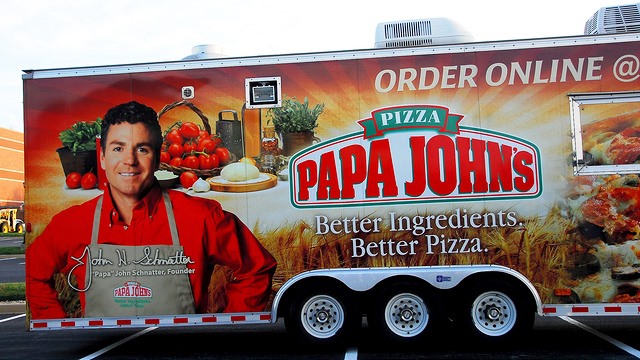 2018 saw many PR crises. In some cases, corporations handled controversies well. In other cases, not so well. Sometimes, the PR management was a major flub.
2018 saw many PR crises. In some cases, corporations handled controversies well. In other cases, not so well. Sometimes, the PR management was a major flub.
While smaller companies and some well-known celebrities committed PR blunders this year, the three top PR controversies involve major corporations. The incidents and subsequent communications management provide some valuable PR lessons.
Facebook Privacy and Data Security
Facebook wins the dubious honor or the worst-handled PR crisis of the year. Its PR crisis with data analytics firm Cambridge Analytica brought privacy and data security to the forefront of public attention.
Media outlets reported in March that Cambridge Analytica harvested almost 50 million Facebook profiles without users’ permission. Cambridge Analytica paid Cambridge University researcher Aleksandr Kogan to build a personality quiz app that supposedly determined personality traits of Facebook users who downloaded the app and completed the quiz. The app also downloaded personal data. The media called the data collection one of the largest data breaches ever.
Facebook’s first response was to argue that there was no data breach, since users who downloaded the app knowingly and no systems were infiltrated. That defense centered on semantics, a poor PR response.
Another mistake: CEO Mark Zuckerberg and Chief Operating Officer Sheryl Sandberg remained silent, at least initially, even though Zuckerberg frequently publishes personal Facebook posts on current issues.
Facebook’s response was reactive rather than proactive, PR experts said. The company suspended Cambridge Analytica only after learning about the forthcoming media articles.
The revelation prompted Congress to summon Mark Zuckerberg to testify. Facebook users deleted the network’s app or visited the platform less frequently, according to surveys over the following months. Within days after the Cambridge Analytica story broke, Facebook stock lost a total market value of about $135 billion and Zukerberg lost an estimated $11 billion on his personal holdings of Facebook stock.
The PR and financial debacle illustrates the importance of addressing negative news head on and releasing negative news before the media, rather than reacting to media reports, trying to evade the issue and blame others.
The Tesla Tweets
 In a series of tweets, Tesla Motors Chairman and CEO Elon Musk announced he planned to take Tesla private and said he had secured enough funding for a private buyout of the company. The SEC soon accused Musk of issuing “false and misleading” statements and said he failed to properly notify regulators of material company events.
In a series of tweets, Tesla Motors Chairman and CEO Elon Musk announced he planned to take Tesla private and said he had secured enough funding for a private buyout of the company. The SEC soon accused Musk of issuing “false and misleading” statements and said he failed to properly notify regulators of material company events.
While he remains CEO, Musk agreed to step down as the company’s chairman for three years and pay a $20 million fine as part of the SEC settlement. Tesla also agreed to pay a fine and implement corporate governance changes, including procedures to oversee Musk’s business communications.
The brush with the SEC offers valuable PR and corporate communications lessons. It shows that corporations should take social media seriously. Known for funny memes and cute cat videos, social media is not a laughing matter for corporate CEOs, who are under constant critical scrutiny. The incident also shows that social media is poor platform for SEC financial disclosures. Those disclosures require long, formal statements, explanations and examples. Twitter’s 280-character limit is not an appropriate platform to disclose corporate financial data or make major announcements.
Papa John and the Pizza Chain
Papa John’s Chairman John Schnatter resigned after using a racial slur during a telephone conference call with its outside marketing agency this summer. It wasn’t Schnatter’s first brush with controversy. He had resigned as CEO in December after blaming poor sales on the NFL’s response to players who kneeled during the National Anthem.
The company sought to distance itself from “Papa John” Schnatter, its founder. It wasn’t an easy task since his image appeared on its pizza boxes, website and other marketing materials. Schnatter’s face even appeared on the news release that announced his resignation.
The incident shows the dangers of closely linking a single person with the brand’s image. As CNN asked: How do you rebrand Papa John’s when the problem is Papa John?
The company responded fairly well after his departure. In addition to distancing itself from the former CEO, the company started the process of treating the stain of racism left by Schnatter. It announced anti-bias training for company staff, an expansion of minority-owned franchises, and the creation of a foundation to support “causes that bring people together.”
But ongoing legal wrangling with Schnatter over corporate control has given the pizza franchise a PR bellyache. Although ousted as chairman and CEO, Schnatter holds the largest slice of the pizza chain — about 30% of its outstanding stock – and is attempting to wrest back executive control.
Bottom Line: The three PR crisis involving well-known brands provide important PR and corporate communications lessons.
William J. Comcowich founded and served as CEO of CyberAlert LLC, the predecessor of Glean.info. He is currently serving as Interim CEO and member of the Board of Directors. Glean.info provides customized media monitoring, media measurement and analytics solutions across all types of traditional and social media.





